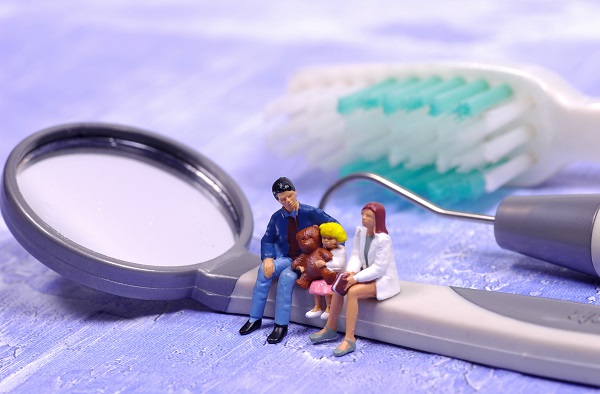A Family Dentist Discusses the Importance of X-rays

At one point or another, a family dentist might suggest getting x-rays and examinations of the oral cavity. The scans might be more regularly recommended for patients with a high risk of tooth decay than once or twice a year. X-rays are important and a necessary aspect of a dental diagnostic procedure. Without the scan, it might be impossible to detect some dental conditions with the naked eye.
The importance of x-rays according to a family dentist
One of the major reasons people visit the dentist is to detect oral conditions before they become complicated. Although a physical examination can detect obvious signs of problems, some oral diseases are not plain to the naked eye. Therefore, x-rays are a required part of dental care.
X-rays are necessary because there is a limitation to what can be diagnosed absent the aid of dental devices, and x-rays allow dentists to have a close-up visual of areas between and under the teeth. The family dentist can see the pattern of tooth eruption, the alignment, presence of dark spots between the teeth that may indicate cavities, any impacted teeth beneath the surface of the gums, or missing adult teeth.
X-rays also play a crucial role in detecting possible life-threatening conditions. A scan can reveal cancerous tumors in the oral cavity. Early detection ensures prompt intervention and increases the chances of successful treatment.
Types of x-rays
There are four different types of x-rays that are commonly used in the dental office. The x-rays are different, depending on the teeth that need scanning, the mouth quadrant, and the angle of the scans.
- Panoramic: A panoramic x-ray is an image of the entire mouth. For this x-ray, the camera will go around the head. It helps the dentist observe the growth and development of the teeth and jaws
- Bitewing: For this scan, a patient will bite down on a unique sheet of paper as the scan is ongoing. Dentists use this x-ray to check how the tooth crowns line up. This x-ray helps to reveal the presence of cavities between the teeth, as well
- Intraoral-Periapical (PA): This x-ray provides a close-up look of the bicuspids and molars and helps dentists observe the entirety of the teeth, from root to crown
- Occlusal: This scan focuses on how the upper and lower teeth line up (bite alignment). It also helps to discover decay on the front teeth
The bottom line
Many people are often bothered about the effects of radiation from dental x-rays, but there is usually no need for concern. Dental offices take the necessary precautions to run the diagnostic scan safely. The level of radiation from dental-x-rays is minimal, and the risk is insignificant.
Although x-rays are not taken every six months, they are just as important for preventive care as every other step. A family dentist typically takes x-ray scans to get a clear overview of the oral cavity and ensure the mouth stays healthy. Brushing, flossing, regular dental checkups, and x-rays all play a crucial role in dental health and limiting the occurrence of oral issues such as cavities and gum disease.
Request an appointment here: https://www.ardendentalassoc.com or call Arden Dental Associates - Carlos Campodonico, DDS at 7632373371 for an appointment in our Blaine office.
Check out what others are saying about our services on Yelp: Read our Yelp reviews.
Related Posts
In addition to regular dental checkups, dental deep cleaning can be an important step in maintaining good oral health. This treatment, which is sometimes recommended for patients with severe plaque buildup or gum disease, can be used to address current issues while preventing new ones from developing in the future. The process is straightforward and…
A broken tooth is one of those injuries that always seem to happen at the worst possible times. A common way that people chip or break teeth is by biting on something hard. Such injuries are more likely to occur when the tooth has already been weakened by tooth decay.The severity of the damage to…
Full mouth dental implants are an option that many patients choose when they need to replace their missing teeth. Our smile is the first impression we have when meeting a new person. We all want that impression to be warm and welcoming. When our smile is somewhat imperfect, we tend to lack confidence and feel…
Finding the right family dentist now is a good step to take for your family. That way if you or another family member have a dental problem that requires immediate care, you will be prepared and will not waste time looking. It can seem overwhelming to decide on a dentist with so many choices available…




